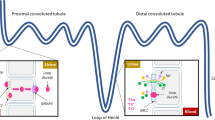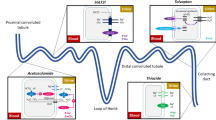Abstract
Purpose of Review
Differences between men and women in demographics and clinical phenotype of heart failure have previously been described, as well as disparities in management and outcomes. This review summarizes the latest evidence concerning sex-related differences in acute heart failure and its most severe form, cardiogenic shock.
Recent Findings
Data from the last 5 years reaffirm the previous observations, with women with acute heart failure being older, more often having preserved ejection fraction and less frequently having an ischemic cause of the acute decompensation. Despite women still receive less invasive procedures and a less optimized medical treatment, the most recent studies find similar outcomes regardless of sex. These disparities persist in the context of cardiogenic shock, where women receive less mechanical circulatory support devices even if they present with more severe forms.
Summary
This review reveals a different clinical picture of women with acute heart failure and cardiogenic shock compared to men, which translates into disparities in management. More female representation in studies would be needed in order to better understand the physiopathological basis of these differences and minimize inequalities in treatment and outcomes.

Similar content being viewed by others
References
Papers of particular interest, published recently, have been highlighted as: • Of importance •• Of major importance
Savarese G, Becher PM, Lund LH, Seferovic P, Rosano GMC, Coats AJS. Global burden of heart failure: a comprehensive and updated review of epidemiology. Cardiovasc Res. 2023 Jan 18;118(17):3272–87. https://doi.org/10.1093/cvr/cvac013.
Parissis JT, Mantziari L, Kaldoglou N, Ikonomidis I, Nikolaou M, Mebazaa A, et al. Gender-related differences in patients with acute heart failure: management and predictors of in-hospital mortality. Int J Cardiol. 2013;168(1):185–9.
Vos T, Lim SS, Abbafati C, Abbas KM, Abbasi M, Abbasifard M, et al. Global burden of 369 diseases and injuries in 204 countries and territories, 1990–2019: a systematic analysis for the Global Burden of Disease Study 2019. The Lancet. 2020;396(10258):1204–22.
Tsao CW, Aday AW, Almarzooq ZI, Alonso A, Beaton AZ, Bittencourt MS, et al. Heart Disease and Stroke Statistics—2022 Update: A Report From the American Heart Association. Circulation. 2022;145(8):e153-639.
Maas AH, van der Schouw YT, Regitz-Zagrosek V, Swahn E, Appelman YE, Pasterkamp G, Ten Cate H, Nilsson PM, Huisman MV, Stam HC, Eizema K, Stramba-Badiale M. Red alert for women’s heart: the urgent need for more research and knowledge on cardiovascular disease in women: Proceedings of the Workshop held in Brussels on Gender Differences in Cardiovascular disease, 29 September 2010. Eur Heart J. 2011 Jun;32(11):1362–8. https://doi.org/10.1093/eurheartj/ehr048.
Lam CSP, Arnott C, Beale AL, Chandramouli C, Hilfiker-Kleiner D, Kaye DM, et al. Sex differences in heart failure. Eur Heart J. 2019;40(47):3859–3868c.
Vitale C, Fini M, Spoletini I, Lainscak M, Seferovic P, Rosano GM. Under-representation of elderly and women in clinical trials. Int J Cardiol. 2017;1(232):216–21.
Everitt IK, Trinh KV, Underberg DL, Beach L, Khan SS. Moving the paradigm forward for prediction and risk-based primary prevention of heart failure in special populations. Curr Atheroscler Rep. 2022;24(5):343–56.
Lala A, Tayal U, Hamo CE, Youmans Q, Al-Khatib SM, Bozkurt B, Davis MB, Januzzi J, Mentz R, Sauer A, Walsh MN, Yancy C, Gulati M. Sex differences in heart failure. J Card Fail. 2022;28(3):477–98.
Nieminen MS, Harjola VP, Hochadel M, Drexler H, Komajda M, Brutsaert D, et al. Gender related differences in patients presenting with acute heart failure Results from EuroHeart Failure Survey II. Eur J Heart Fail. 2008;10(2):140–8.
Galvao M, Kalman J, Demarco T, Fonarow GC, Galvin C, Ghali JK, et al. Gender differences in in-hospital management and outcomes in patients with decompensated heart failure: analysis from the acute decompensated heart failure national registry (ADHERE). J Card Fail. 2006;12(2):100–7.
Scrutinio D, Guida P, Passantino A, Lagioia R, Raimondo R, Venezia M, et al. Female gender and mortality risk in decompensated heart failure. Eur J Intern Med. 2018;1(51):34–40.
• Scicchitano P, Paolillo C, De Palo M, Potenza A, Abruzzese S, Basile M, et al. Sex differences in the evaluation of congestion markers in patients with acute heart failure. J Cardiovasc Dev Dis. 2022;9(3):67. In this work, authors analyse sex-differences in biomarkers for congestion evaluation.
• Mulla W, Goldenberg I, Klempfner R, Much AA, Grupper A, Peled Y, et al. Sex differences in clinical characteristics and 1- and 10-year mortality among patients hospitalized with acute heart failure. Am J Med Sci. 2020;360(4):392–401. One of the most recent series of patients with acute heart failure, focusing on sex differences in long-term outcomes.
Meyer S, van der Meer P, Massie BM, O’Connor CM, Metra M, Ponikowski P, et al. Sex-specific acute heart failure phenotypes and outcomes from PROTECT. Eur J Heart Fail. 2013;15(12):1374–81.
•• Blumer V, Greene SJ, Wu A, Butler J, Ezekowitz JA, Lindenfeld J, et al. Sex differences in clinical course and patient-reported outcomes among patients hospitalized for heart failure. JACC Heart Fail. 2021;9(5):336–45. Sub-analyse of ASCEND-HF trial, where authors focus on sex differences in outcomes.
• Cenko E, van der Schaar M, Yoon J, Manfrini O, Vasiljevic Z, et al. Sex-related differences in heart failure after st-segment elevation myocardial infarction. J Am Coll Cardiol. 2019;74(19):2379–89. This work provides interesting information on sex-related differences in the particular setting of acute heart failure after STEMI.
•• Motiejūnaitė J, Akiyama E, Cohen-Solal A, Maggioni AP, Mueller C, Choi DJ, et al. The association of long-term outcome and biological sex in patients with acute heart failure from different geographic regions. Eur Heart J. 2020;41(13):1357–64. In this study, authors analyse sex differences in clinical profile, management and outcomes in patients from two big cohorts.
Ye F, Nelson MB, Bertoni AG, Ditzenberger GL, Duncan P, Mentz RJ, et al. Severity of functional impairments by race and sex in older patients hospitalized with acute decompensated heart failure. J Am Geriatr Soc. 2022;70(12):3447–57.
Meyer S, Brouwers FP, Voors AA, Hillege HL, de Boer RA, Gansevoort RT, et al. Sex differences in new-onset heart failure. Clin Res Cardiol. 2015;104(4):342–50.
Meyer S, Teerlink JR, Metra M, Ponikowski P, Cotter G, Davison BA, et al. Sex differences in early dyspnea relief between men and women hospitalized for acute heart failure: insights from the RELAX-AHF study. Clin Res Cardiol. 2017;106(4):280–92.
Tsao CW, Lyass A, Enserro D, Larson MG, Ho JE, Kizer JR, et al. Temporal trends in the incidence of and mortality associated with heart failure with preserved and reduced ejection fraction. JACC Heart Fail. 2018;6(8):678–85.
Dunlay SM, Roger VL. Gender differences in the pathophysiology, clinical presentation, and outcomes of ischemic heart failure. Curr Heart Fail Rep. 2012;9(4):267–76.
•• Espersen C, Campbell RT, Claggett B, Lewis EF, Groarke JD, Docherty KF, et al. Sex differences in congestive markers in patients hospitalized for acute heart failure. ESC Heart Fail. 2021;8(3):1784–95. This study provides information on sex differences in echocardiographic and lung ultrasound evaluation of congestion in patients with acute heart failure.
• Sethares KA, Chin E. Age and gender differences in physical heart failure symptom clusters. Heart Lung J Cardiopulm Acute Care. 2021;50(6):832–7. Interesting analysis of the different forms of clinical presentation of acute heart failure.
Raymond I, Groenning BA, Hildebrandt PR, Nilsson JC, Baumann M, Trawinski J, et al. The influence of age, sex and other variables on the plasma level of N-terminal pro brain natriuretic peptide in a large sample of the general population. Heart. 2003;89(7):745–51.
Wang TJ, Larson MG, Levy D, Leip EP, Benjamin EJ, Wilson PWF, et al. Impact of age and sex on plasma natriuretic peptide levels in healthy adults. Am J Cardiol. 2002;90(3):254–8.
Luchner A, Behrens G, Stritzke J, Markus M, Stark K, Peters A, et al. Long-term pattern of brain natriuretic peptide and N-terminal pro brain natriuretic peptide and its determinants in the general population: contribution of age, gender, and cardiac and extra-cardiac factors. Eur J Heart Fail. 2013;15(8):859–67.
Sobhani K, Nieves Castro DK, Fu Q, Gottlieb RA, Van Eyk JE, Noel BaireyMerz C. Sex differences in ischemic heart disease and heart failure biomarkers. Biol Sex Differ. 2018;9(1):43–2325.
Maffei S, Del Ry S, Prontera C, Clerico A. Increase in circulating levels of cardiac natriuretic peptides after hormone replacement therapy in postmenopausal women. Clin Sci (Lond). 2001;101(5):447–53.
Lam CSP, Cheng S, Choong K, Larson MG, Murabito JM, Newton-Cheh C, et al. Influence of sex and hormone status on circulating natriuretic peptides. J Am Coll Cardiol. 2011;58(6):618–26.
Daniels LB, Clopton P, Potocki M, Mueller C, McCord J, Richards M, et al. Influence of age, race, sex, and body mass index on interpretation of midregional pro atrial natriuretic peptide for the diagnosis of acute heart failure: results from the BACH multinational study. Eur J Heart Fail. 2012;14(1):22–31.
Maisel AS, Clopton P, Krishnaswamy P, Nowak RM, McCord J, Hollander JE, et al. Impact of age, race, and sex on the ability of B-type natriuretic peptide to aid in the emergency diagnosis of heart failure: results from the Breathing Not Properly (BNP) multinational study. Am Heart J. 2004;147(6):1078–84.
Krauser DG, Chen AA, Tung R, Anwaruddin S, Baggish AL, Januzzi JL. Neither race nor gender influences the usefulness of amino-terminal pro-brain natriuretic peptide testing in dyspneic subjects: a ProBNP investigation of dyspnea in the emergency department (PRIDE) substudy. J Card Fail. 2006;12(6):452–7.
Daniels LB, Maisel AS. Cardiovascular biomarkers and sex: the case for women. Nat Rev Cardiol. 2015;12(10):588–96.
Hsich EM, Grau-Sepulveda MV, Hernandez AF, Eapen ZJ, Xian Y, Schwamm LH, et al. Relationship between sex, ejection fraction, and B-type natriuretic peptide levels in patients hospitalized with heart failure and associations with inhospital outcomes: findings from the Get With The Guideline-Heart Failure Registry. Am Heart J. 2013;166(6):1063-1071.e3.
Knudsen CW, Riis JS, Finsen AV, Eikvar L, Müller C, Westheim A, et al. Diagnostic value of a rapid test for B-type natriuretic peptide in patients presenting with acute dyspnoe: effect of age and gender. Eur J Heart Fail. 2004;6(1):55–62.
Miller T, Carter SV, Smith BA. Disparities in acute decompensated heart failure. Curr Opin Cardiol. 2021;36(3):335–9.
Averbuch T, Mohamed MO, Islam S, Defilippis EM, Breathett K, Alkhouli MA, Michos ED, Martin GP, Kontopantelis E, Mamas MA, Van Spall HGC. The Association Between Socioeconomic Status, Sex, Race / Ethnicity and In-Hospital Mortality Among Patients Hospitalized for Heart Failure. J Card Fail. 2022;28(5):697–709.
• Yan I, Schrage B, Weimann J, Dabboura S, Hilal R, Beer BN, et al. Sex differences in patients with cardiogenic shock. ESC Heart Fail. 2021;8(3):1775. Contemporary cohort of patients in cardiogenic shock, analysing sex differences in management and outcomes.
• Collado-Lledó E, Llaó I, Rivas-Lasarte M, González-Fernández V, Noriega F, Hernández-Pérez F, et al. Clinical picture, management and risk stratification in patients with cardiogenic shock: does gender matter? BMC Cardiovasc Disord. 2020;21:20. In this work, authors analyse sex-differences in patients with cardiogenic shock, focusing on risk stratification scores.
Vallabhajosyula S, Prasad A, Bell MR, Sandhu GS, Eleid MF, Dunlay SM, et al. Extracorporeal membrane oxygenation use in acute myocardial infarction in the United States, 2000 to 2014. Circ Heart Fail. 2019;12(12):e005929.
•• Sambola A, Elola FJ, Buera I, Fernández C, Bernal JL, Ariza A, et al. Sex bias in admission to tertiary-care centres for acute myocardial infarction and cardiogenic shock. Eur J Clin Invest. 2021;51(7): e13526. In this study, authors describe the sex-related differences observed in management of patients with cardiogenic shock, with women being less often referred to tertiary centers.
Wong SC, Sleeper LA, Monrad ES, Menegus MA, Palazzo A, Dzavik V, et al. Absence of gender differences in clinical outcomes in patients with cardiogenic shock complicating acute myocardial infarction: a report from the SHOCK Trial Registry. J Am Coll Cardiol. 2001;38(5):1395–401.
Harjola VP, Lassus J, Sionis A, Køber L, Tarvasmäki T, Spinar J, et al. Clinical picture and risk prediction of short-term mortality in cardiogenic shock. Eur J Heart Fail. 2015;17(5):501–9.
• Rubini Gimenez M, Zeymer U, Desch S, de Waha-Thiele S, Ouarrak T, Poess J, et al. Sex-specific management in patients with acute myocardial infarction and cardiogenic shock. Circ Cardiovasc Interv. 2020;13(3):e008537. Sub-analysis of CULPRIT-SHOCK trial, one of the most recent RCTs focusing on cardiogenic shock.
Collado E, Luiso D, Ariza-Solé A, Lorente V, Sánchez-Salado JC, Moreno R, et al. Hospitalization-related economic impact of patients with cardiogenic shock in a high-complexity reference centre. Eur Heart J Acute Cardiovasc Care. 2021;10(1):50–3.
• Ya’qoub L, Lemor A, Dabbagh M, O’Neill W, Khandelwal A, Martinez SC, et al. JACC Cardiovasc Interv. 2021;14(6):653–60. In this work, authors describe sex differences in management of patients in cardiogenic shock, with women receiving less invasive procedures and less mechanical circulatory support.
Naidu SS, Baran DA, Jentzer JC, Hollenberg SM, van Diepen S, Basir MB, et al. SCAI SHOCK stage classification expert consensus update: a review and incorporation of validation studies: this statement was endorsed by the American College of Cardiology (ACC), American College of Emergency Physicians (ACEP), American Heart Association (AHA), European Society of Cardiology (ESC) Association for Acute Cardiovascular Care (ACVC), International Society for Heart and Lung Transplantation (ISHLT), Society of Critical Care Medicine (SCCM), and Society of Thoracic Surgeons (STS) in December 2021. J Am Coll Cardiol. 2022;79(9):933–46. https://doi.org/10.1016/j.jacc.2022.01.018.
Elgendy IY, Wegermann ZK, Li S, Mahtta D, Grau-Sepulveda M, Smilowitz NR, Gulati M, Garratt KN, Wang TY, Jneid H. Sex differences in management and outcomes of acute myocardial infarction patients presenting with cardiogenic shock. JACC Cardiovasc Interv. 2022;15(6):642–52.
•• Wang AS, Nemeth S, Kurlansky P, Brodie D, Takayama H, Naka Y, et al. Sex differences in patients with cardiogenic shock requiring extracorporeal membrane oxygenation. J Thorac Cardiovasc Surg. 2022;164(3):960-969.e6. Interesting analysis of sex-related differences in patients requiring mechanical circulatory support.
DeFilippis EM, Truby LK, Garan AR, Givens RC, Takeda K, Takayama H, et al. Sex-related differences in use and outcomes of left ventricular assist devices as bridge to transplantation. JACC Heart Fail. 2019;7(3):250–7.
Bravo-Jaimes K, Mejia MO, Abelhad NI, Zhou Y, Jumean MF, Nathan S, Dhoble A. Gender differences in the outcomes of cardiogenic shock requiring percutaneous mechanical circulatory support. Am J Cardiol. 2022;174:20–6.
Author information
Authors and Affiliations
Corresponding author
Ethics declarations
Human and Animal Rights and Informed Consent
This article does not contain any studies with human or animal subjects performed by any of the authors.
Conflict of Interest
The authors declare no competing interests.
Additional information
Publisher's Note
Springer Nature remains neutral with regard to jurisdictional claims in published maps and institutional affiliations.
Rights and permissions
Springer Nature or its licensor (e.g. a society or other partner) holds exclusive rights to this article under a publishing agreement with the author(s) or other rightsholder(s); author self-archiving of the accepted manuscript version of this article is solely governed by the terms of such publishing agreement and applicable law.
About this article
Cite this article
Collado-Lledó, E., de la Cuerda, F. & Ariza-Solé, A. Sex Differences in Acute Heart Failure Management: Is There a Gap in Treatment Quality?. Curr Heart Fail Rep 20, 121–128 (2023). https://doi.org/10.1007/s11897-023-00593-2
Accepted:
Published:
Issue Date:
DOI: https://doi.org/10.1007/s11897-023-00593-2




